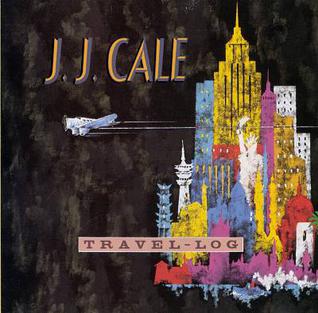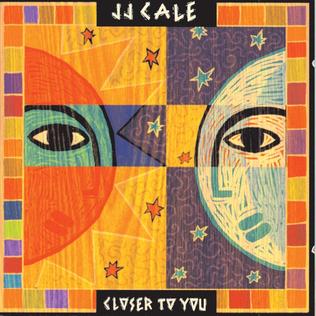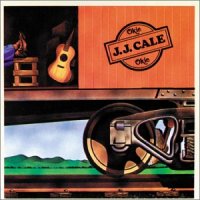
John Weldon "J. J." Cale was an American guitarist, singer, and songwriter. Though he avoided the limelight, his influence as a musical artist has been acknowledged by figures such as Neil Young, Mark Knopfler, Waylon Jennings, and Eric Clapton, who described him as one of the most important artists in rock history. He is one of the originators of the Tulsa sound, a loose genre drawing on blues, rockabilly, country, and jazz.

Eric Clapton is the debut solo studio album by English rock musician Eric Clapton, released in August 1970 by Atco and Polydor Records.
The Tulsa sound is a popular musical style that originated in Tulsa, Oklahoma, during the second half of the twentieth century. It is a mix of blues, blues rock, country, rock and roll and swamp pop sounds of the late 1950s and early 1960s. Artists considered to have pioneered the Tulsa sound include J. J. Cale, Leon Russell, Roger Tillison and Elvin Bishop. After 1980, Gus Hardin (country), and Jeff Carson (country) released roots music albums. Although Dwight Twilley is from Tulsa, his power pop style bears no resemblance to the Tulsa sound; likewise, David Gates' most recognized songs were mostly in the soft rock genre.

Naturally is the debut studio album by J. J. Cale released on October 25, 1971.

"After Midnight" is a rock song by J. J. Cale, first released in 1966. Eric Clapton later covered it for his eponymous album, released in 1970. Clapton's rendition became a success, prompting Cale to re-record the song for his own 1971 album Naturally. In 1987, Clapton later re-recorded the song for a Michelob beer commercial and then released the re-recording as a single. "After Midnight" has been considered one of Clapton's signature songs throughout his career. Other artists covered the song in later years.

Troubadour is the fourth studio album by J. J. Cale. Eric Clapton covered the song "Cocaine" on his 1977 album Slowhand, turning it into one of his biggest hits.

The Road to Escondido is a collaborative studio album by J. J. Cale and Eric Clapton. It was released on 7 November 2006. Contained on this album are the final recordings of keyboardist Billy Preston. The album is jointly dedicated to Preston and Brian Roylance.

Really is the second studio album by J. J. Cale. It was released in 1972.

5 is the fifth studio album by J. J. Cale. Released in 1979, it was his first album in three years. When the album was re-issued on CD, "Katy Kool Lady" was replaced by a new song listed as "Out of Style," though it was still listed as the former on the CD. "Out of Style" is also included on the 2007 album Rewind: The Unreleased Recordings under its proper title. There is still no U.S. domestic release of the song "Katy Kool Lady" on CD.
"Call Me the Breeze" is a rock song by J. J. Cale. It first appeared on his 1972 debut album, Naturally, as the opening track. The song consists of a 12-bar blues guitar shuffle and features the early use of a drum machine.

Grasshopper is a 1982 album by J. J. Cale. It was his seventh studio album since his debut in 1971.

Roll On is the 14th studio album by J. J. Cale, released on February 24, 2009, by Rounder Records. All songs were written by Cale; they include "Who Knew", "Former Me", and "Roll On", the last of which is a collaboration with Eric Clapton. Some tracks were recorded at sessions at David Teegarden's studio, north of Tulsa, Oklahoma, in 2003.

To Tulsa and Back is the 13th album by J. J. Cale, released in 2004.

Shades is the sixth studio album by J. J. Cale, released in February 1981.

#8 is an album by the American musician J. J. Cale, released in 1983.

Travel-Log is the ninth studio album by J. J. Cale. It was released in 1989.

Old Sock is the nineteenth solo studio album by Eric Clapton. It includes the two new compositions "Gotta Get Over" and "Every Little Thing", as well as covers. Several notable musicians were involved in the album, including Steve Winwood, JJ Cale and Paul McCartney.

Closer to You is the 11th studio album by J. J. Cale, released in 1994. It was published under the independent French label Delabel and distributed by Virgin Records.
"Travelin' Light" is a song written and recorded by the Tulsa musician J.J. Cale. It was released in September 1976 on Cale's fourth studio album Troubadour under Shelter Records. It was also released as a single the same year. It was later covered by the British guitarist Eric Clapton for his 2001 studio album Reptile and helped to promote both the song and studio album on which "Travelin' Light" was first released. Athens, Georgia band Widespread Panic also covered it on their debut album, and it has continued to be a mainstay of their live show ever since.

Hank Wilson's Back Vol. I is an album by singer and songwriter Leon Russell singing as Hank Wilson. The UK edition has a banner printed on the front of the sleeve to the right of Russell's stetson saying "Leon Russell!", presumably as a marketing initiative to promote the album using the strength of Russell's name.


















